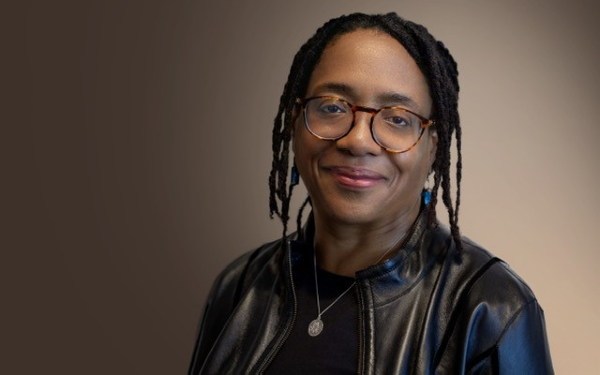
One of the most concerning recent developments in social care has been the huge growth in the number of children with highly complex needs made subject to deprivation of liberty (DoL) orders.
For many, these have involved moving into unregistered placements – without Ofsted’s regulatory oversight – with severe restrictions placed on their movement and access to technology, constant supervision, often by multiple staff members and significant use of restraint.
Councils, and occasionally NHS trusts, have sought the orders under the inherent jurisdiction of the High Court – its backstop power to protect vulnerable people.
This has been because of a lack of appropriate placements to meet their needs, whether in open or secure children’s homes or specialist tier 4 child and adolescent mental health services (CAMHS).
A failure of the system
However, for social worker Beverley Barnett-Jones, the experience of these children is not just about a dearth of placements but a failure of the system to address their needs much earlier in their lifespan.
Barnett-Jones, whose background is in child protection, is associate director of system and impact at the Nuffield Family Justice Observatory (NJFO).
After establishing a dedicated national DoL court to deal with applications for these orders in June 2022, family courts president Sir Andrew McFarlane enlisted the research body to collect and analyse data on children subject to the court’s applications and orders.
In a report earlier this month, the NJFO set out ten points about the children subject to DoL orders and the care they receive, which made for sobering reading.
NJFO’s key points on children deprived of their liberty
- 1,249 children were subject to DoL applications in the first 12 months of the national court, often because there was no alternative and depriving them of their liberty was seen as the only way of keeping them safe.
- They have multiple and complex needs, including mental health problems, behavioural and emotional difficulties, and difficulties with education – which they are not receiving adequate support for.
- Their behaviours are often associated with experiences of early and ongoing childhood adversity, such as abuse, neglect, poverty or racism, and complex trauma.
- They have little agency over what happens to them.
- While a DoL is often intended to be temporary, many children will be deprived of their liberty for many months, often in unsuitable – and illegal (ie unregistered) – placements far from home.
- These children’s needs do not appear overnight. Services are failing to respond to their needs – not just at points of crisis but at earlier stages in their lives and throughout adolescence.
- Children and their families are being pushed around different systems that have different ways of working, different criteria for accessing support and different legal frameworks.
- Though a national issue, some councils are using DoL orders more than others.
- There is no simple solution but there is good practice to build upon.
- Changes to ways of working, and the type and availability of provision, are needed to better meet these children’s needs.
‘These children are known to us’
For Barnett-Jones, two fundamental points among the ten are that these children are known to social care and other services, and that their needs are rooted in early and ongoing childhood adversity.
“These children are known to us – the majority were already on care orders. What are we doing in terms of their therapeutic, their family needs, their identity needs such that, when they reach 15, they are hitting the need for these high-risk orders?
The emphasis on trauma-informed practice in recent years is one response to this issue, but Barnett-Jones says social work education and training need to go further.
Social workers ‘need understanding of child development’
“It’s about getting social workers really understanding child development and what we now know about that developmental journey, that cognitive and developmental trauma story.
“That doesn’t just work at the level of psychology, but at the level of the body. A lot of them have physical illnesses.”
She adds: “Social workers need to understand what this child is showing them, rather than it being a crisis – really working with that child to tell you that story, to identify what their needs are, what has happened to them in their relationships, what has been a helpful relationship for them in the past.”
Neurodivergence
Another dimension is understanding how a child’s neurodivergence, for example, being autistic or having ADHD, may affect their risk of ending up on a DoL.
“I would like social workers need to think long and hard about the likely trajectories,” says Barnett-Jones “For example, when a child comes into care at eight, and then hits puberty and starts demonstrating behaviours.
“We know there are children who issues with their neurodivergence – we need to start thinking about planning for those differences when they emerge.”
She adds: “We are managing risk but not doing the kind of work around recovery to help children address trauma and the reasons behind their behaviours. There’s a failure of imagination in how we care for these children.”
Good practice principles
In its latest report, the NJFO set out five principles of care for children at risk of being deprived of their liberty:
- Stable, trusted, valued relationships.
- Holistic assessment, formulation and a tailored plan of intervention and support.
- Long-term support that is tailored to their needs.
- Highly experienced, multidisciplinary teams.
- Agency and respect.
What DoL orders are the very opposite of this, Barnett-Jones says.
Instability
While designed to be a temporary last resort en route to a more stable placement, the NJFO found that two-thirds of those subject to DoL applications in July and August 2022 were still on an order at the end of the year.
Over half of this group were placed in at least one unregistered placement.
“The thing they need the most ie stability, that clearly isn’t happening when they are moving around in unregistered provision,” she says.
“We don’t know what happens to these children in their care arrangements,” Barnett-Jones adds. “We know that in two-thirds of cases, restraint is permitted.
“There are real questions around unregistered placements, and the qualifications of staff in those placements.”
The onus on social workers
At the same time, many judges are requiring councils to be presenting an updated care plan for the child when applying for a DoL, which Barnett-Jones supports, despite it not traditionally being a part of inherent jurisdiction cases.
This context places even more onus on the child’s social worker, she says.
“You need to visit more frequently, especially if the placement is unregistered, to make sure they are implementing the DoL properly and working with Ofsted as they are supposed to be getting registered. Then there’s promoting the wellbeing of the child and moving towards recovery.”
“The social worker has to be the relational stable person as there’s no one else around the child as they are moving, moving, moving.
“I know of colleagues who are in the system still who are saying it’s incredibly hard work. Social workers have a caseload of 20 and two DoL cases and they can take up a week’s work.”
‘If we get it right for them, we get it right for everyone’
The deprivation of liberty of children within the care system did not merit a mention in Stable Homes, Built on Love, the Department for Education’s strategy to reform children’s social care, including by providing more “high-quality, stable and loving homes” for children in care.
However, for Barnett-Jones getting it right for this group of children should be the fundamental metric for reforming the system as a whole.
“There are great things going on in the care system but this group of young people, who have got the most complex needs, and at the moment we are failing them,” she says.
“They are a small group, they don’t represent the majority. But if we get it right for these young people, we get it right for all young people.”



 Family help: one local authority’s experience of the model
Family help: one local authority’s experience of the model  ‘I spent the first three months listening’: how supportive leadership can transform children’s services
‘I spent the first three months listening’: how supportive leadership can transform children’s services  How senior leaders in one authority maintain a culture of excellence
How senior leaders in one authority maintain a culture of excellence  How staff support ensures fantastic outcomes for children and families
How staff support ensures fantastic outcomes for children and families  Workforce Insights – showcasing a selection of the sector’s top recruiters
Workforce Insights – showcasing a selection of the sector’s top recruiters 

 Facebook
Facebook X
X LinkedIn
LinkedIn Instagram
Instagram
Lack of resources make it difficult to do a proper job in social care and health. The agendas for care and look after children and adults need to be viewed. How do we manage within the available resources that is getting smaller and smaller. To achieve the best for those in need the whole system need to change his hierarchy system by reducing the layers of management at the top and recruiting more social workers and nurses. Paying the top people in these services as if they’re in private sectors is draining the resources that can be used to care. Secondly why do we give people redundancy payments that they bank and they can return to the businesses within 6 months as an agency workers. Why were they allowed to go in the first place.
Thirdly recruiting committed individuals are crucial. These were the case in the past.
Thirdly public sectors services do not make money or profits but rely on the taxpayers. Thanks for listening
My grandson has a DOLS started in May and still has it and we can’t see an end to it. He’s never hurt me not once he’s thrown things around and used threatening behaviour and language but he’s with me at home and has been since he was 9 years old I have attended court with a solicitor 4 times so far my grandsons Social worker tried to get and interim career order on him but I said no and the judge did not implement it but has still kept the order in place we are going back to court on the 6th of November. A psychiatrist report on my grandson has been ordered before this date and was completed yesterday
I am devastated and this this is so wrong it was just me and my grandson for over 4 years and now we have 2 people in our home 24/7 since May they are with us everywhere he goes he’s not allowed to go out without them near by and he’s 14 and is desperate to get his freedom back or he says he will find a way to klil himself
I am so worried about us both. What is the answer before it’s too late. This is so wrong living the way we do. No one seems to think it is wrong?